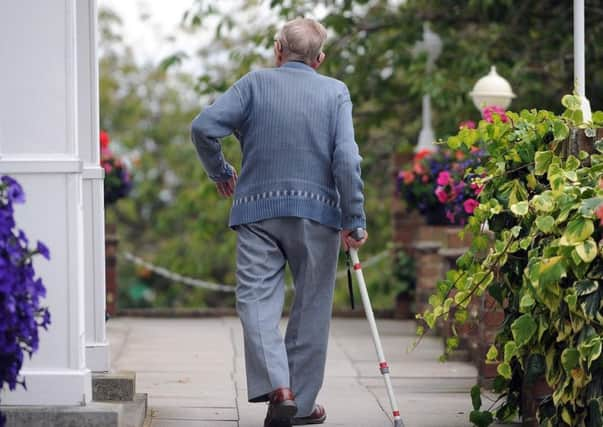Lancaster University scientists discover new Alzheimer's drug


A so-called “triple receptor drug” created to treat type 2 diabetes also helped reduce the amount of amyloid plaques associated with the degenerative brain disorder, the Lancaster University team found.
It also slowed the rate of nerve cell loss and increased levels of a chemical which helps the cells function.
Advertisement
Hide AdAdvertisement
Hide AdThe scientists believe it could bring new hope to the hundreds of thousands of Britons suffering from Alzheimer’s.


Professor Christian Holscher, who led the research, said: “These very promising outcomes demonstrate the efficacy of these novel multiple receptor drugs that originally were developed to treat type 2 diabetes but have shown consistent neuro-protective effects in several studies.
“Clinical studies with an older version of this drug type already showed very promising results in people with Alzheimer’s disease or with mood disorders.
“Here we show that a novel triple receptor drug shows promise as a potential treatment for Alzheimer’s, but further dose-response tests and direct comparisons with other drugs have to be conducted in order to evaluate if this new drug is superior to previous ones.”
Advertisement
Hide AdAdvertisement
Hide AdType 2 diabetes is known to be a risk factor for Alzheimer’s.


The tests used genetically modified mice who had been given genes linked to an inheritable form of the brain disease.
It used a drug which combines three “growth factors”, GLP-1, GIP and Glucagon, which promote cell growth and division, according to the paper, published in the journal Brain Research.
Around 47 million people have dementia worldwide. The number is expected to climb as high as 66 million by 2030 and 115 million by 2050.
Advertisement
Hide AdAdvertisement
Hide AdIn the UK an estimated 850,000 people are living with dementia, most of whom have Alzheimer’s.
The Alzheimer’s Society, which part-funded the research, said the number of people suffering with the disorder in the UK could reach two million by the middle of the century.
Dr Doug Brown, director of research and development, said: “With no new treatments in nearly 15 years, we need to find new ways of tackling Alzheimer’s.
“It’s imperative that we explore whether drugs developed to treat other conditions can benefit people with Alzheimer’s and other forms of dementia.
Advertisement
Hide AdAdvertisement
Hide Ad“This approach to research could make it much quicker to get promising new drugs to the people who need them.
“Although the benefits of these ‘triple agonist’ drugs have so far only been found in mice, other studies with existing diabetes drugs such as liraglutide have shown real promise for people with Alzheimer’s, so further development of this work is crucial.”